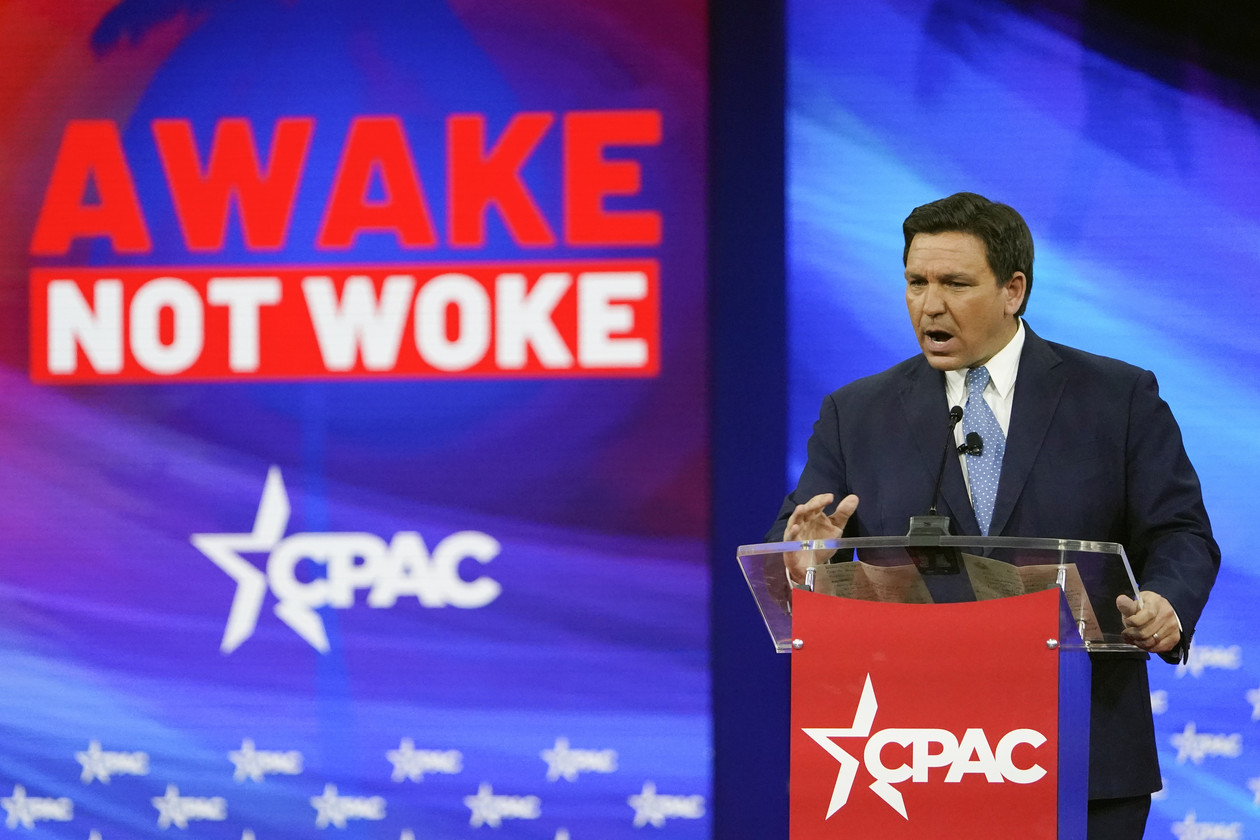Ron DeSantis has discovered a lane. Now he must determine whether it is broad enough to support a successful campaign.
With Donald Trump dominating the populist right and the GOP establishment split among multiple low-polling alternatives, Ron DeSantis is siding with a third group: very online, anti-“woke” Silicon Valley moguls.
DeSantis’ decision to announce his presidential run on Twitter Spaces with Elon Musk and the outspoken venture capitalist David Sacks on Wednesday evening represents an embrace of a right-wing, anti-establishment politics that has gained currency in recent years among the tech set in the Bay Area, Austin, and Miami.
This strain, typified by libertarian dissatisfaction with everything from federal agencies to progressive prosecutors to American foreign policy, was nurtured during the epidemic era on the voice-chat platform Clubhouse, Sacks’ popular podcast “All In,” and, most importantly, Twitter.
It shared a set of similar adversaries with DeSantis’ brand of combative politics, including the “woke mind virus,” as Musk once referred to increasing progressivism — as well as conventional media outlets, which DeSantis is notably ignoring in his online campaign rollout.
Musk has increasingly dabbled in conservative politics: although claiming to be an independent, he campaigned for a Republican Congress in the past election and has paid cordial visits to GOP leaders on Capitol Hill. Sacks and Musk have both publicly backed DeSantis in recent months, while the governor and the entrepreneurs have discreetly courted one other behind the scenes.
DeSantis is wagering that by announcing his race alongside the two billionaires on Twitter Spaces, his ultra-wealthy followers would be valuable not only for writing checks, but also for framing his campaign for public consumption.
However, one prominent DeSantis backer voiced pessimism that their brand of neolibertarian politics will sway enough Republican votes to unseat Trump.
The choice was questioned by veteran Republican Ed Rollins, a key political strategist for Ready for Ron, an unauthorised PAC dedicated to supporting DeSantis. “Is it going to be his issue or the Twitter show?” Rollins inquired. “You have to win Iowa.” You have to win New Hampshire, and you should focus your efforts there.”
Rollins, who has stated that his first aim is to defeat Donald Trump, has stated that he is already turning against DeSantis. “I believe the campaign was ineffective,” Rollins remarked.
“It’s a big coup for Twitter and Elon, but I’m not sure it’s the smartest choice for the DeSantis campaign,” said Nu Wexler, a former congressional staffer and Google and Facebook veteran who now works in public relations and is a keen observer of tech-world politics. “It’s an extremely online candidate talking to an extremely online host, most likely about niche issues that will be lost on voters in Iowa and New Hampshire.”
While Musk is the greater name, Sacks has been the more hands-on political player in recent years, working with a motley crew of candidates like Rep. Ro Khanna, the tech-friendly Silicon Valley Democrat, and Democrat Robert F. Kennedy Jr., who appeared on Sacks’ show earlier this month.
Sacks, like Musk, worked at PayPal with Peter Thiel and contributed to the Senate campaigns of Palantir founder J.D. Vance and Blake Masters, both Republicans.
According to Puck’s Teddy Schleifer, in addition to talks with DeSantis, he has been secretly building out a political operation, including the foundation of a dark money nonprofit, Purple Action Inc., last summer.
He has also become a type of barometer for a group of Silicon Valley businesspeople who were once close to the Obama-era Democratic Party but have since shifted rightward and away from the East Coast elite.
Investor Keith Rabois, a fourth member of the “PayPal Mafia,” has also spoken out in support of DeSantis. Rabois, who is married to a man, recently endorsed the controversial “Don’t Say Gay” law enacted by Florida’s governor on Twitter.
Musk’s anti-“woke” stance has alienated many users since his takeover of the platform last year, with some migrating to Mastodon, a Twitter competitor. A Vanity Fair headline comparing Musk to the renowned white nationalist David Duke when covering the campaign launch announcement.
According to one recent poll, Musk’s public standing remained higher than that of any other public person.
Musk had the greatest net favorability rating among the 22 prominent people evaluated, 14 points above water, according to a Harvard/Harris poll of registered voters conducted last week. DeSantis was tied for second place with Republican primary candidate Nikki Haley, with a net favorability of eight points. In the poll, Trump was one point underwater, and President Joe Biden was ten points underwater.
And the rollout serves at least one common purpose shared by both DeSantis and Silicon Valley libertarians: circumventing mainstream media.
DeSantis has made a point of avoiding mainstream media. In recent weeks, Twitter has attempted to promote itself as a platform where right-wing consumers may consume media information directly.
Conservative pundit Tucker Carlson announced earlier this month that he would move his Fox News show to Twitter after being fired, but no further specifics have been released, and Carlson is apparently still negotiating with his old network. The Daily Wire, a conservative news outlet, announced on Tuesday that it would start streaming its most popular shows on Twitter, citing its hands-off approach to content regulation.
Whether or not the launch style benefits DeSantis with Republican primary voters, it is already popular among Silicon Valley libertarians on Twitter.
“The media landscape has changed,” said investor and Sacks podcast co-host Jason Calacanis in response to the announcement plans. “Whereas CNN or Fox would drive 1-3 million viewers, Twitter will almost certainly drive a multiple of that.”









